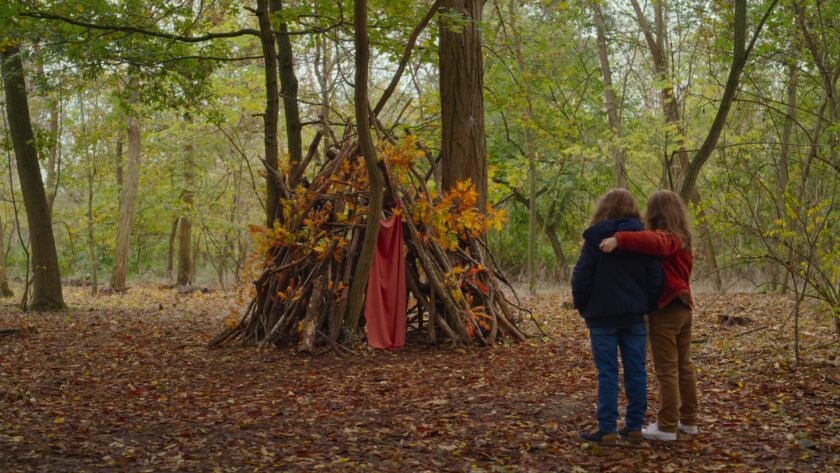Editor-in-chief Pihla Pekkarinen admires Céline Sciamma’s confident direction in her latest understated feature.
Céline Sciamma exploded into the mainstream in 2019 with her thoughtful, touching love story Portrait of a Lady on Fire (read a retrospective here). In normal times, a film like Petite Maman might be seen as a regression for her. A critically-acclaimed, highly respected and sought after director following up her success with a low-budget, understated, naturalistic film with a cast of only five. Of course, as we all know, these are not normal times. Petite Maman was shot, edited, announced, and birthed into the film scene in just five short months, all of which fell within the confines of the COVID-19 pandemic. As such, this film doesn’t have the air of one Sciamma was desperate to make. Rather, it’s a film she made because she was desperate to make any film at all – a feeling any creative is rather familiar with at this point.
Petite Maman opens in a care home, where we follow Nelly (Joséphine Sanz) saying goodbye to the elderly residents. Her parents have finished packing up her grandmother’s room, recently passed, and the three set off to her grandmother’s home to empty it out for sale. The atmosphere is gloomy and mournful. Nelly’s mother Marion (Nina Meurisse) is struggling under the weight of her grief, her father (Stéphane Varupenne) is stressed by the responsibility of emptying out the house, and Nelly is largely left to fend for herself. She is an intelligent, empathetic, and charming child, but finds herself lonely.
She sets off in search of the fort her mother constructed in the woods as a child, and finds a girl who looks uncannily similar to her, who introduces herself as Marion. At first, Nelly is bewildered as Marion takes her to the house she is already familiar with, and introduces her to her mother, a 35-year old version of Nelly’s recently deceased grandmother. But after an initial hesitation, Nelly casts her uncertainties aside and forms a firm friendship with Marion in the way that only eight-year-olds can, diving into make-believe and fort construction, sharing secrets and dreams without so much as a second thought.
The lack of situational and temporal specificity sets this film apart from Sciamma’s earlier works about childhood and young people. In the past, films like Girlhood and Water Lilies are set in cities, with the situational context playing a large part in the plot of the films. Petite Maman is more fable-like, lacking, for the most part, any indication of time period: an unusual choice for a time-travel film. But Sciamma isn’t interested in drawing out Nelly and Marion’s differences, instead focusing on their similarities. The friendship between the two girls feels exceptionally authentic. Their closeness on screen is likely helped by the fact that the central pair are actually sisters (twins, by the look of it). Their pre-existing relationship, combined with Sciamma’s expert writing, creates a distinct feeling of warmth. I defy anyone not to crack a smile while watching the girls giggle as they make crepes together.
Despite its low-key nature, Petite Maman has much more in common with Sciamma’s recent work than her earlier, clumsier films. The dialogue is sparse, with every line working to advance the plot and the relationships between the characters. It’s true that the concept feels like something she might have come up with for a short film at school, when budgets were lower and opportunities fewer; in fact, at 73 minutes, Petite Maman is pushing the (albeit arbitrary) lower boundaries of the feature-length film. But the end result bears the mark of a seasoned director, and despite a seemingly limited plot and setting, thematically, this film is as complex as you’d expect for a Berlinale selection; thoughtfully and carefully presenting us with a nuanced look at parent-child relationships and the roles our past selves play in our present lives.




